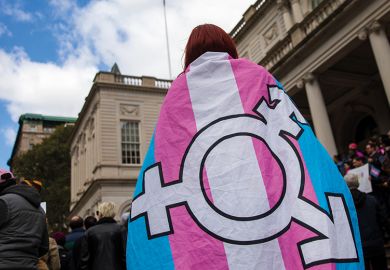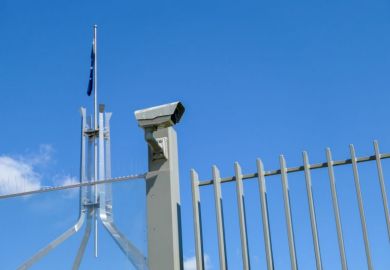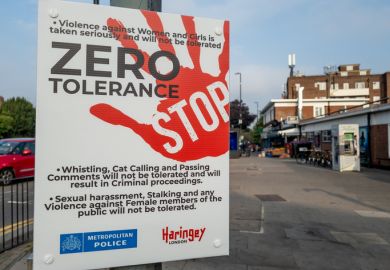Australia’s top-ranked university amended its free speech policy following consultations with its transgender and gender-diverse community, and a forthcoming inclusivity policy could further override free speech rights.
A draft of the University of Melbourne’s first gender affirmation policy says the institution is “committed” to freedom of speech. “But [Melbourne] does not support the exercise of freedom of speech when the exercise undermines the capacity of individuals to participate fully in the university,” the document says.
Melbourne’s new freedom of speech policy, adopted in late March, has already broadened the grounds on which free speech rights may be overruled. A new provision allows the university not to permit an event that “prejudices the fulfilment by the university of its duty to foster the safety and well-being of staff and students”. The previous wording allowed it to veto only events that jeopardised “the physical safety of individuals”.
The new phrase is identical to a clause in the government-endorsed “model code” for the protection of freedom of speech, which sets out the grounds on which visitors may be barred from speaking at universities. The wording attracted some criticism at the time of the code’s drafting. In a 2019 email to fellow chancellors, the Australian National University’s Gareth Evans cited concerns that the term “well-being” might “be so broad as to have an unacceptably dampening effect on campus free speech”.
But a page on Melbourne’s website says that during consultation last year, “the relationship between the existing freedom of speech policy and the gender affirmation policy was raised as a significant issue by a number of stakeholders”. “Consequently, revisions were proposed to the freedom of speech policy to convey a stronger commitment to minimise harmful speech and actions,” it says.
The draft gender affirmation policy flags possible sanctions against those guilty of “unacceptable and/or unlawful behaviour” such as “deliberately using incorrect names or pronouns”. Individuals’ preferred gender descriptors “will be affirmed by university employees”, the policy says.
The draft policy has emerged amid a backlash against Melbourne philosopher Holly Lawford-Smith, who opposes legislation “that replaces sex with gender identity”. In February, Dr Lawford-Smith launched a website that publishes anonymous accounts of the adverse effects on women of “men” using “women-only spaces”, including bathrooms, rape refuges and prisons.
An open letter demanding that the university take “swift and decisive action” over the website has attracted 2,700 signatories from around the world. The letter also questions Dr Lawford-Smith’s credentials to teach a subject on feminist theory. “Appeals to freedom of speech are a common response to critiques of trans-exclusionary positions,” the letter says. “Academic freedom does not mean the freedom to spread misinformation and incite hatred.”
Dr Lawford-Smith claimed that consultations on the gender affirmation policy appeared to have been timed to appease her critics. “There’s no such policy for any other minority group,” she said. “It’s giving them extravagant powers over other people like the control of language. It’s allowing the veto of public events. The whole point of a university is to be a place where ideas can be interrogated and challenged; these policies are basically shutting down discussion.”
A Melbourne spokesman said the proposed gender affirmation policy was being developed as part of a “broader review” of policies from “a diversity and inclusion perspective”.
“One of our core values is that there must be a genuine and deep culture of respect for everyone at our university, and of course this includes being completely respectful towards the rights of the LGBTQIA+ community. This is non-negotiable,” he said.
Register to continue
Why register?
- Registration is free and only takes a moment
- Once registered, you can read 3 articles a month
- Sign up for our newsletter
Subscribe
Or subscribe for unlimited access to:
- Unlimited access to news, views, insights & reviews
- Digital editions
- Digital access to THE’s university and college rankings analysis
Already registered or a current subscriber?










